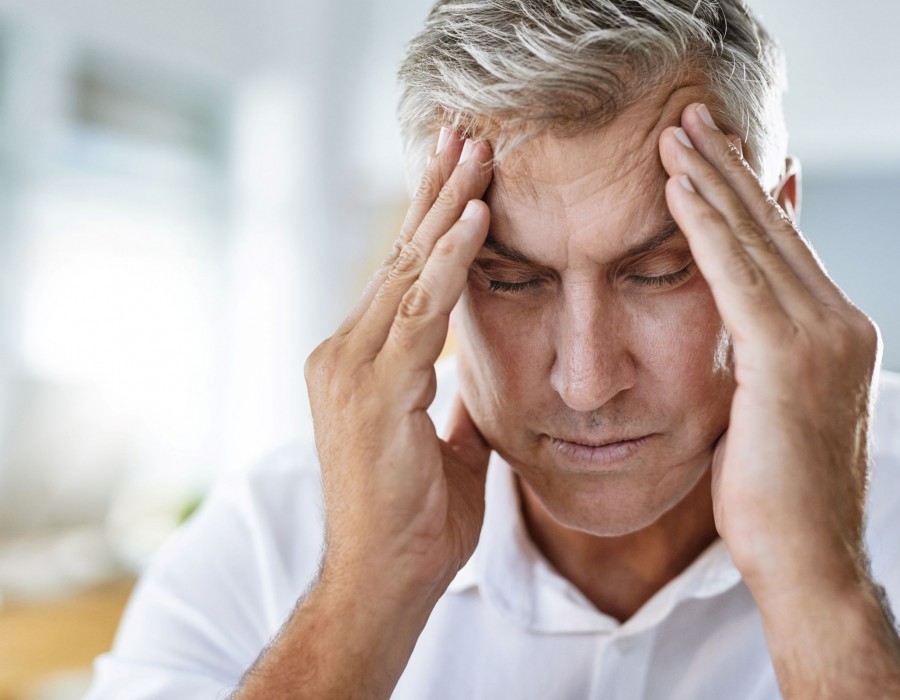Here are some tips that may help relieve headache pain:
1. Take over-the-counter pain relief medications such as aspirin, ibuprofen, or acetaminophen as directed on the label.
2. Apply a cold or hot compress to your head. A cold compress can help numb the pain and reduce inflammation, while a warm compress can help relax tense muscles.
3. Practice relaxation techniques such as deep breathing, meditation, or yoga to help relieve stress and tension that may contribute to headaches.
4. Try to rest and relax in a quiet, dark room if possible, to reduce sensory stimulation.
5. Drink plenty of fluids, especially water, to prevent dehydration, which can trigger headaches.
6. Eat a healthy and balanced diet that includes regular meals and snacks throughout the day, as skipping meals or going too long without eating can also trigger headaches.
7. Limit your intake of caffeine, alcohol, and nicotine, as they can trigger headaches or make them worse.
8. Consider alternative therapies such as acupuncture, massage, or biofeedback, which may help reduce headache pain and frequency.
If your headache pain is severe or persistent, or if you experience other symptoms such as fever, vomiting, or changes in vision or speech, it's important to seek medical attention right away.
Take over-the-counter pain
Relief medications such as aspirin, ibuprofen, or acetaminophen can help relieve headache pain. Aspirin and ibuprofen are both nonsteroidal anti-inflammatory drugs (NSAIDs) that can help reduce inflammation and relieve pain, while acetaminophen works by blocking pain signals in the brain.
It's important to follow the recommended dosage and directions on the label when taking these medications, as taking too much or taking them for extended periods of time can cause side effects such as stomach ulcers, kidney damage, or liver damage.
Also, it's important to note that overuse of certain pain relief medications can cause a type of headache called a rebound headache, which occurs when the medication wears off and the headache returns, leading to a cycle of pain and medication use.
If you experience frequent or severe headaches, it's important to talk to your doctor to determine the underlying cause and develop a treatment plan that may include medication, lifestyle changes, or other therapies.
Apply a cold or hot compress to your head
Applying a cold or hot compress to your head can help relieve headache pain in different ways.
A cold compress, such as a cold pack or a washcloth soaked in cold water, can help reduce inflammation and numb the pain. Applying cold to the forehead or temples can also help constrict blood vessels and reduce blood flow to the area, which can help relieve migraine headaches.
On the other hand, a hot compress, such as a warm towel or a heating pad, can help relax tense muscles and increase blood flow to the area, which can help relieve tension headaches.
It's important to note that some people may find cold compresses to be more effective for headaches, while others may prefer hot compresses. You can experiment with both and see which one works better for you.
Also, be sure to wrap the compress in a towel or cloth before applying it to your head to prevent direct contact with the skin, which can cause skin irritation or burns. Apply the compress for 10-15 minutes at a time, and take breaks in between if necessary.
Practice relaxation techniques
Practicing relaxation techniques such as deep breathing, meditation, or yoga can help reduce stress and tension that may contribute to headaches.
Deep breathing involves taking slow, deep breaths through the nose and exhaling slowly through the mouth. You can do this while sitting or lying down in a quiet, comfortable place. Focus on your breath and try to clear your mind of any distracting thoughts.
Meditation involves sitting quietly and focusing on a specific word, phrase, or object, or simply observing your thoughts without judgment. This can help calm the mind and reduce stress and tension.
Yoga involves a series of poses and breathing exercises that can help improve flexibility, balance, and relaxation. Some yoga poses, such as the child's pose or the downward-facing dog, can help relieve tension in the neck and shoulders, which can contribute to headaches.
Other relaxation techniques that may help relieve headaches include progressive muscle relaxation, where you tense and relax different muscle groups in your body, and visualization, where you imagine a peaceful scene or place to help calm your mind and body.
It's important to find the relaxation technique that works best for you and practice it regularly, even when you're not experiencing a headache, to help prevent headaches from occurring in the first place.
Drink plenty of fluids
Drinking plenty of fluids is important for staying hydrated and can help prevent headaches caused by dehydration. Dehydration can cause headaches, especially if you're exercising, spending time in the sun, or not drinking enough fluids throughout the day.
Water is the best choice for staying hydrated, but you can also drink other fluids such as herbal tea, coconut water, or sports drinks. However, be aware that some drinks, such as alcohol or caffeine, can actually contribute to dehydration and may trigger headaches in some people.
It's important to drink fluids throughout the day, rather than waiting until you're thirsty. Aim for at least 8-10 glasses of fluid per day, and more if you're exercising or spending time in hot weather.
If you're experiencing a headache, drinking fluids may help relieve the pain, especially if the headache is caused by dehydration. Drinking a glass of water or herbal tea, or even eating a piece of watermelon or cucumber, can help hydrate the body and relieve headache pain.





Comments